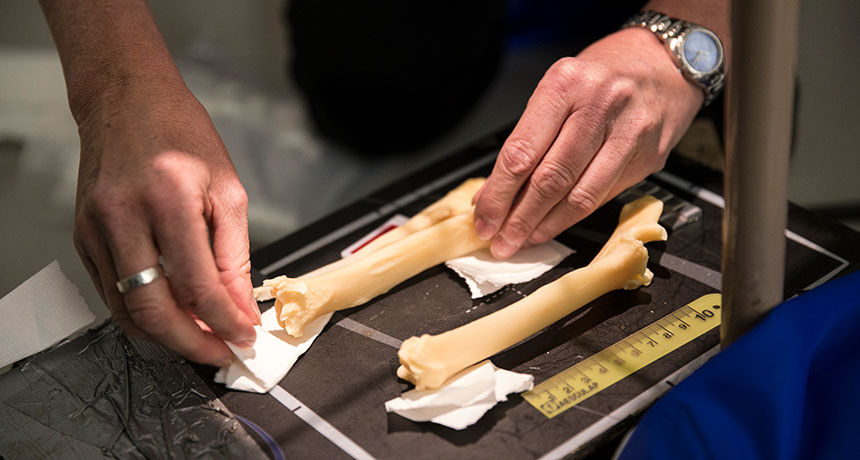Bones show Dolly’s arthritis was normal for a sheep her age

In the scientific version of her obituary, Dolly the Sheep was reported to have suffered from severe arthritis in her knees. The finding and Dolly’s early death from an infection led many researchers to think that cloning might cause animals to age prematurely.
But new X-rays of Dolly’s skeleton and those of other cloned sheep and Dolly’s naturally conceived daughter Bonnie indicate that the world’s first cloned mammal had the joints of normal sheep of her age. Just like other sheep, Dolly had a little bit of arthritis in her hips, knees and elbows, developmental biologist Kevin Sinclair of the University of Nottingham in England and colleagues report November 23 in Scientific Reports.
The researchers decided to reexamine Dolly’s remains after finding that her cloned “sisters” have aged normally and didn’t have massive arthritis (SN: 8/20/16, p. 6). No formal records of Dolly’s original arthritis exams were kept, so Sinclair and colleagues got Dolly’s and Bonnie’s skeletons and those of two other cloned sheep, Megan and Morag, from the National Museums Scotland in Edinburgh. Megan and Bonnie were both older than Dolly at the time of their deaths and had more bone damage than Dolly did. Morag died younger and had less damage.
Dolly’s arthritis levels were similar to those of naturally conceived sheep her age, indicating that cloning wasn’t to blame. “If there were a direct link with cloning and osteoarthritis, we would have expected to find a lot worse, and it would be more extensive and have a different distribution than what we’re finding in ordinary sheep,” says study coauthor Sandra Corr, a veterinary orthopedic specialist at the University of Glasgow in Scotland.
Dolly’s slightly creaky joints may have stemmed from giving birth to six lambs, including Bonnie. Pregnancy is a risk factor for arthritis in sheep.